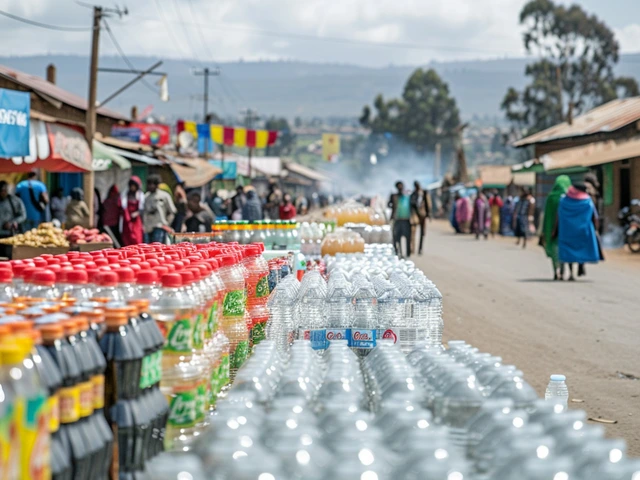Quality of Life in Ethiopia: What You Really Need to Know
Ever wondered what daily life feels like in Ethiopia? Most people think about beautiful landscapes and ancient culture, but quality of life here comes down to practical stuff—how much people earn, what it costs to live, and how work opportunities stack up.
Salaries are a big deal in this story. In Ethiopia, wages range from the minimum salary—which often just covers basic needs—to better pay in higher-skilled jobs or specialized roles like pharmacists and teachers. If you're curious about numbers, the average monthly income hovers around the lower end compared to Western countries, but everyday expenses like food and local transport are much more affordable.
Let’s talk housing. Finding a place to live in Addis Ababa or another city is easier if you know the going rates for rent. Apartments in the center cost more, but you get the perks of city life—closer to jobs and services. Suburbs or rural homes drop the price tag, but you might compromise on modern amenities. Whether you’re a local moving cities or an expat looking to settle in, understanding average rents and living conditions makes a huge difference in how comfortable you’ll feel.
If you’re thinking about working or starting a business, Ethiopia isn’t short on options. The economy is growing fast, powered by investments in agriculture, infrastructure, and technology. Jobs in these sectors pay better, but competition can be tight. High-demand jobs like healthcare workers, teachers, and IT professionals are opening new doors. For savvy investors, opportunities in agriculture or tech can be quite profitable if you know when and where to step in.
But what about cost of living? Cheap food and simple transport keep expenses under control, but imported goods, private healthcare or international schools can add up. Some modern comforts mean paying premium prices—worth keeping in mind if you’re moving with a family or want a more international lifestyle.
Safety matters, too. Addis Ababa, the capital, is generally safe for work and travel, especially if you stick to popular neighborhoods and keep an eye out like you would in any big city. Expats and business travelers settle in for the friendly social scene but learn quickly about staying aware of their surroundings.
Language is another key. Amharic is the official language, but many regions have their own local languages—being able to greet and chat in the local tongue adds a lot to your experience, opens up career options, and helps with settling in.
Thinking about making money online? Ethiopia’s digital scene is growing. Some online services like PayPal aren’t fully available, but creative freelancers and entrepreneurs find workarounds using local and regional payment solutions. Freelancing, e-commerce, and blogging are building new paths for extra income, especially among young people and those with digital skills.
Living in Ethiopia is about balance—earning enough for a comfortable lifestyle, making smart choices about where to live, and keeping an eye on changes in the job and investment market. Whether you plan to work, invest, or just experience daily life, knowing the real numbers behind salary, rent, and expenses helps you make better choices for you and your family.





